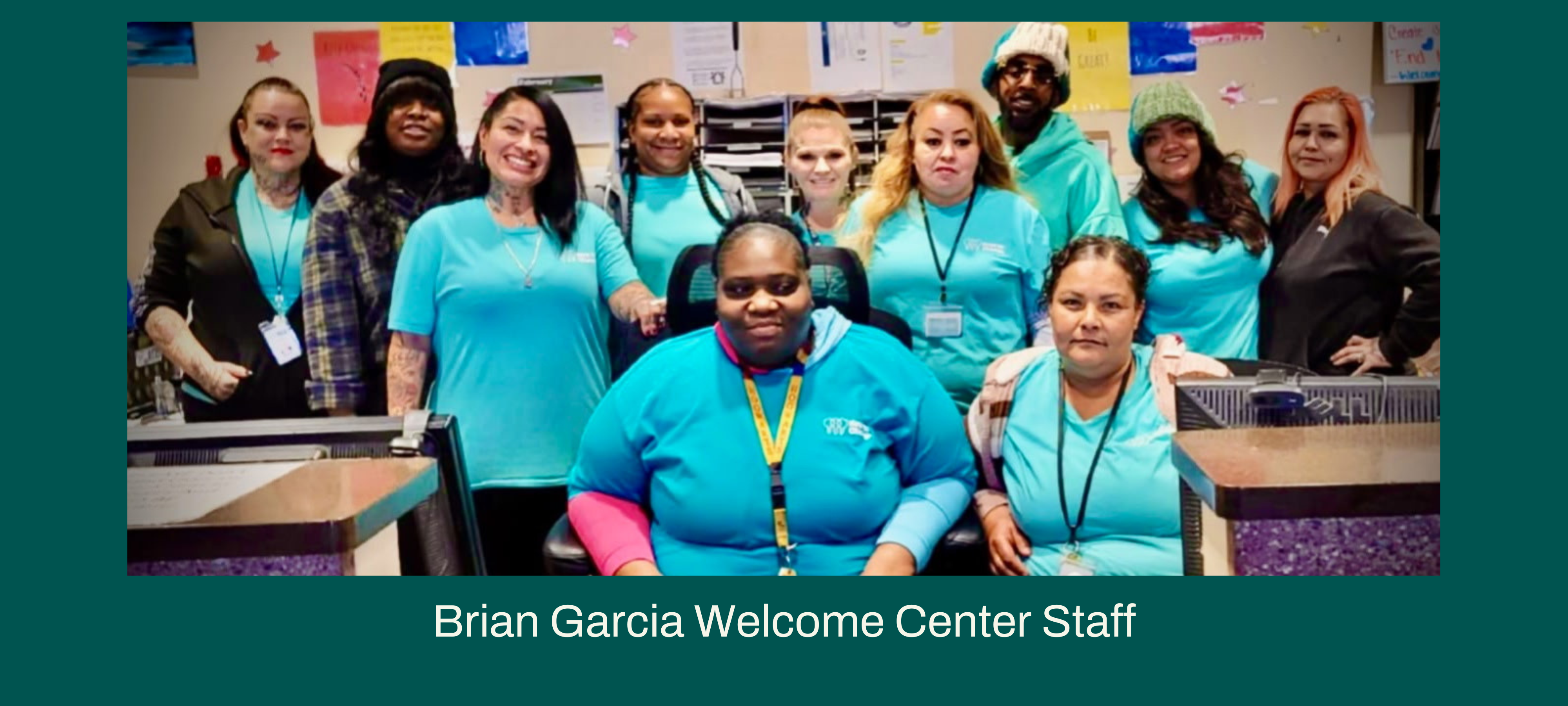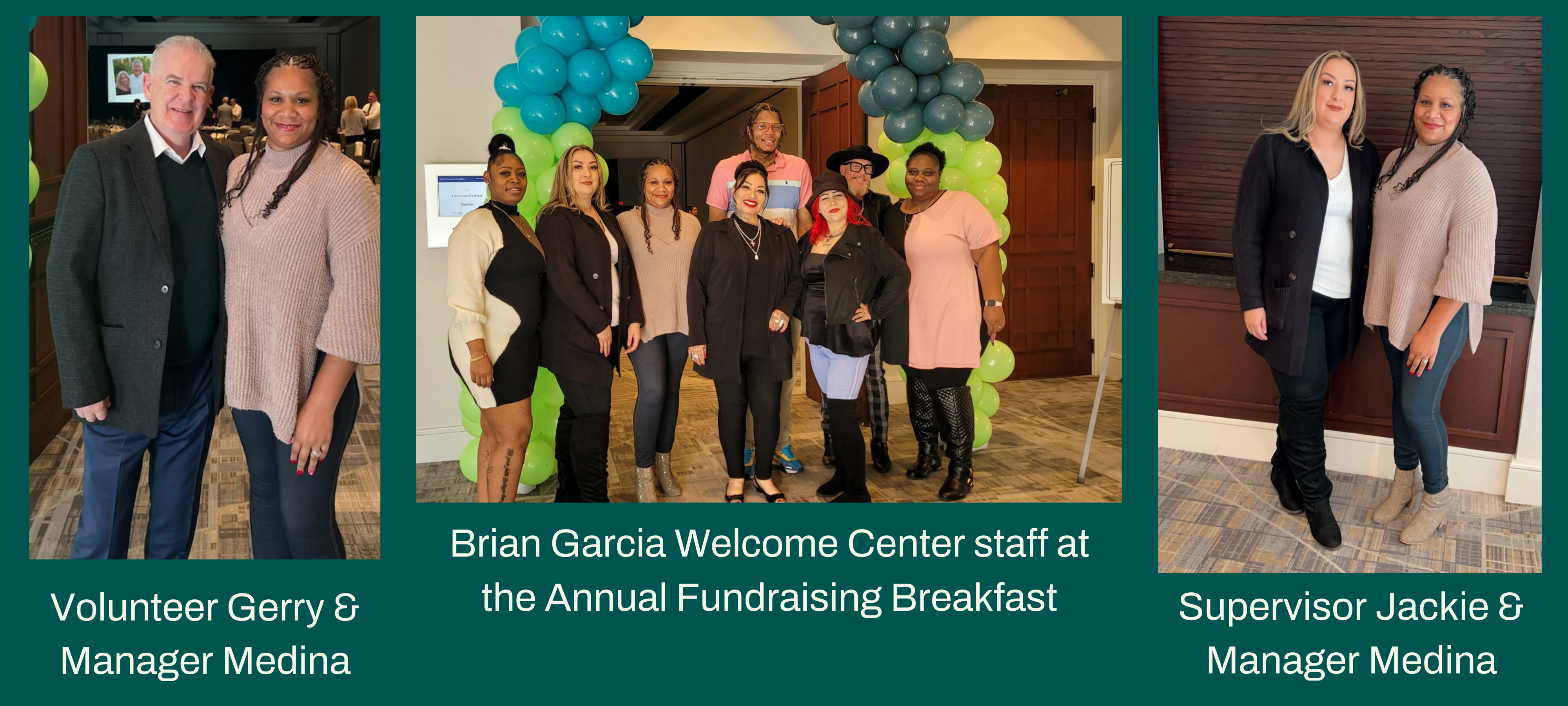The Heart of Key Campus
The Heart of Key Campus
Homelessness isn’t 9 to 5.
“Homelessness isn’t a 9 to 5 experience; there is no “end” to a day,” says Keys to Change CEO Amy Schwabenlender. “People need assistance 24/7, which the Brian Garcia Welcome Center at Key Campus provides.”
Last month, we introduced you to the Supportive Services team, aka the “lungs” of Key Campus. Today, please meet the team that keeps the heart of Campus beating strong: the Brian Garcia Welcome Center.
The Heart of Key Campus
Every single person who seeks assistance from the 15 partner agencies at Key Campus begins their journey at the Brian Garcia Welcome Center. For many, crossing the threshold to the Welcome Center is their last hope, and we’re often meeting them on one of the worst days of their lives. That first interaction is crucial to inspire hope and establish trust – it can be make-or-break.
For staff, it’s an opportunity to get to know the individual, and to show them that they matter. The experience of homelessness is 24-hour trauma, so the services provided must be trauma-informed.
“Patience is key when working with tough cases, especially when clients might be dealing with a lot of stress or complex challenges,” says Welcome Center Manager Medina Dixon. The emotional endurance demonstrated by the team is “really such a remarkable skill,” adds Medina.
“Because many of our clients come from places that are unsafe, or downright dangerous, safety has to be a priority to ensure they want to be here and continue to receive services,” says AAron Iverson, who manages security as the Keys to Change Operations Director. “The Welcome Center staff and Campus security work hand-in-hand. I’m so impressed by how staff can de-escalate tense situations – they provide tough love and foster a space for breakthroughs to occur.”
A strong and steady pulse
Services provided at the Welcome Center include assessments, shelter referrals, and diversions. A diversion is family reunification, which can effectively end someone’s homelessness and prevent the need to further engage with services. Assessments help establish a housing plan by prioritizing an individual’s needs, identifying disabilities and other barriers, and creating a baseline of data to measure outcomes.
That’s to say nothing of the day-to-day chaos handled by the Welcome Center staff. “We juggle a lot to make sure clients get the help they need,” says Supervisor Jackie Contreras. “Securing shelter beds, printing replacement IDs, managing health crises like scabies or bedbugs, dealing with families with children, battered men and women, abandoned animals, and people that are not shelter-fit being dropped off by hospitals…sometimes all at the same time, all while answering phones and keeping the peace. It’s intense, but can be rewarding when we find the right resource for a client.” In the summertime, the Welcome Center also doubles as a heat relief hub.
Keeping the heartbeat strong
To remain available 24 hours a day, the Welcome Center team is split into first, second, and third shifts. With a relatively small team and increasing demand, volunteers like Gerry Corrigan provide a lifeline to staff and clients alike. “He’s been consistent for the last 9 years. He’s wonderful with the clients,” says manager Medina, who herself is celebrating ten years with the Campus this June. “We all have crucial roles in keeping everything running smoothly. The hardest part of my job is feeling like we don’t have adequate staff levels or resources for the most-needed programs.”
“The best part of my job,” continues Medina, “is seeing staff members develop their own strengths and become more confident in their roles. Through it all, the team is so dedicated and so resilient. They remind our clients that there’s a light at the end of the tunnel.”
Where the healing begins
To experience homelessness is to experience daily heartbreak. No wound is too deep, no life is too far gone – but wounds cannot heal mid-injury. A broken heart can mend itself, but it takes time, and care, and feelings of safety. It takes a supportive community and compassionate individuals to hold space for repairs, and to keep hope alive on even the hardest days. Key Campus Executive Director Tish Brown-Gambino said it best: “we call the Welcome Center ‘the heart of Key Campus’ because it’s where the healing begins.”
Thank you Medina, Jackie, Will, Yannaei, Gina, Darlene, Aimee, Maria, Joy, Malika, Kelli, Demetrius, Misty, Taylor, and Mary for the work you do every day! We see you, we appreciate you, and we’re so very grateful for the heart you bring to everything you do.
About Keys to Change and Key Campus
Keys to Change (formerly HSC, Inc.) is the overarching organization that owns and manages Key Campus (formerly Human Services Campus) where 15 independent nonprofit organizations power a collaborative force united on one campus to end homelessness. Located just west of downtown Phoenix, Key Campus sees more than 1,000 individuals every day, offering a holistic range of client services including: reunification with family and friends; mental, physical and dental health; shelter; employment; meals; legal services and housing. Having all of these resources in one location with intra-agency communications makes it more feasible to provide a customized engagement for each client to help end their homelessness. Keys to Change is a compassionate connector and strategic partner in a leadership role working to end homelessness. For more information, visit www.keystochangeaz.org.




